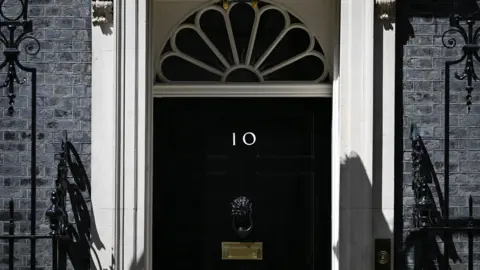In recent developments surrounding Labour Party leader Keir Starmer, the government is grappling with increasing pressure over its proposed welfare reforms. While Angela Rayner, the Deputy Leader, has stated that the government intends to press forward with the contentious legislation next week, whispers of potential last-minute adjustments suggest the situation may still be in flux. A confidential source has noted that discussions about the least damaging course of action are ongoing, especially amid rising tensions within parliamentary ranks.
Notably, more than 120 Labour backbenchers have appended their signatures to an amendment seeking to annul the proposed welfare changes, thereby signaling a strong possibility of an embarrassing legislative defeat for the Starmer administration. The government is currently weighing the merits of inducing concessions to pacify some dissenting members or possibly postponing the vote until the autumn, a move viewed by many as a political strategy to buy time. Chancellor Rachel Reeves seems reluctant to yield, implying that substantial concessions would only emerge if a defeat appears imminent.
Despite impending resistance, should these reforms navigate through Parliament, discontent remains palpable among many MPs, with predictions of lasting divisions within Labour if the legislation passes against the wishes of its members. Just a year after achieving a significant electoral victory, the possibility of faltering on a flagship policy raises questions about the party’s management and unity.
This brewing discontent stems largely from the government’s own assessment, which estimates that nearly 250,000 individuals—including around 50,000 children—could be thrust into relative poverty as a result of the proposed changes. This revelation has alarmed MPs, prompting further scrutiny and internal strife regarding the best approach to welfare reform.
The signs of dissent became evident early in March when backbenchers were summoned to a briefing on the welfare changes. Many emerged unconvinced, expressing concerns that the reforms failed to address the rising costs associated with disabilities. As discussions progressed, MPs have increasingly reached out, advocating for a course correction, with some even drafting a “reasoned amendment” to articulate their opposition publicly.
The government’s management of this political quagmire has faced specific blame, with the Chancellor’s fiscal framework cited as an issue, particularly regarding the prioritization of cuts before substantial welfare reforms take effect. While most Labour MPs acknowledge the need for a revamped welfare system, the division emerges over the timing and implementation of the changes.
Conversely, discontent among the MPs cannot be solely attributed to policy disagreements. The backdrop includes personal aspirations for ministerial roles being thwarted, primarily in a landscape where loyalty may wane if members feel excluded from decision-making processes. This wave of frustration is particularly pronounced among newer members of Parliament who feel disconnected from the leadership that saw them elected—a disconnect exacerbated by the government’s insistence on certain welfare cuts.
The growing rebellion signifies a broader malaise with the government’s agenda while simultaneously reflecting the frustrations of those who were brought into politics on the back of activism against Conservative welfare policies. Backbenchers, especially those from the 2024 election, harbor grievances over perceived neglect from leadership, with some fearing that evolving internal dynamics may risk party discipline.
A significant factor in intensifying the dissent lies within the perception that a substantive U-turn on winter fuel payments has created an atmosphere where rebellion seems not just possible, but effective. Some MPs now believe that persistent opposition could ultimately compel concessions from the government, fueling divisions further.
The political landscape reveals that a substantial majority in Parliament, traditionally seen as a stabilizing force, might paradoxically foster a sense of insecurity among MPs who believe their ministerial aspirations are unattainable. However, as tensions rise over welfare reforms, the unity within Labour is under strain, provoking anxiety about party cohesion. Ultimately, the path ahead will depend significantly on how well the party manages internal dissent while navigating the complexities of national policy that remain at the heart of public discourse.










